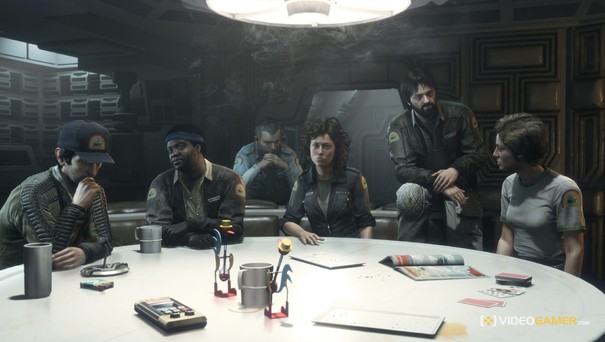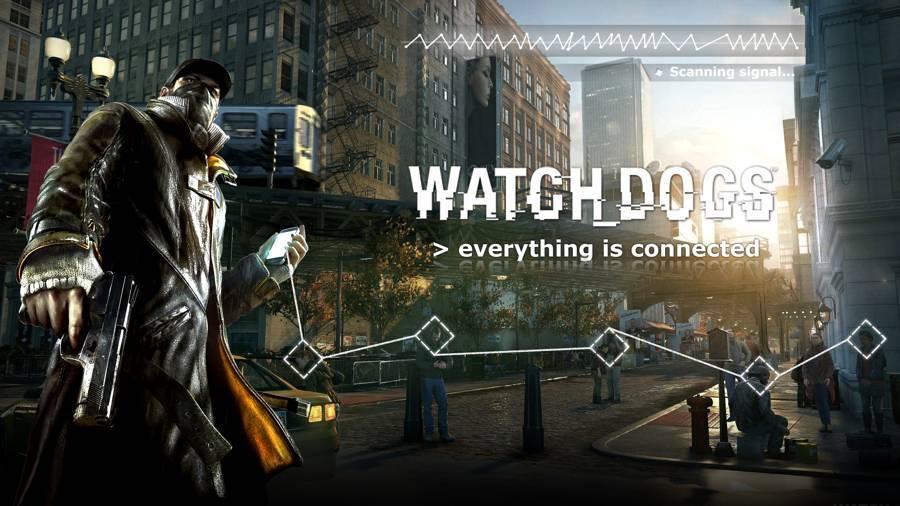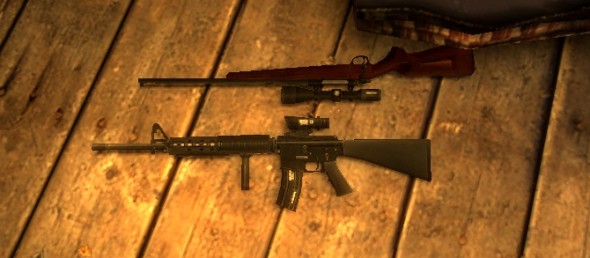

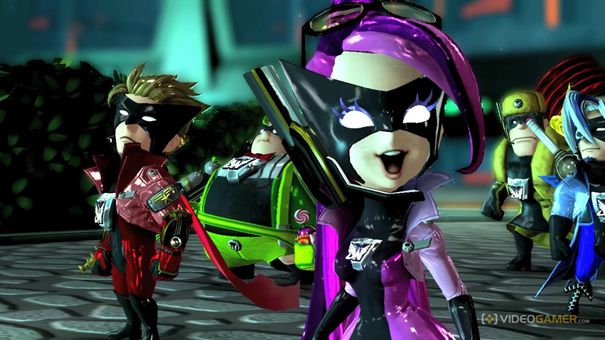

VG: Wonderful 101 is yet another bizarre yet brilliant original game from Platinum. How did it all come about?
Hideki Kamiya: Originally I got an order from the president of Platinum games asking me to create a game idea that had an all-star cast of Nintendo characters plus characters from other games and that's how the project started. When you try and incorporate many characters with high popularity, there are fans who like certain characters more than others. I thought how I could satisfy everyone and make everyone happy and I came up with the idea of why not having everyone displayed in the game at the same time. That's where the idea was born.
When I submitted this idea, it was put on hold for a while and when we revisited it, we decided to change the idea to an all hero game and that's what you see with the final product.
VG: Given how 101 looks, it's somewhat of a surprise that it's far more aimed at someone who's familiar and comfortable with games than someone's who's not. Who did you think it would appeal to, and who was it aimed at?
HK: It was originally aimed at me... [laughs]. When I make games I never really think about who I'm targeting the game for. I just want to create something that's fun and enjoyed by the audience. I still enjoy, even at this age, superhero themes and transformations. It was just pure creating something that I like and incorporating these other things into the game.
VG: Did the Wii U help with that all considering it does offer something other consoles don't? As you've now got two exclusive games for it, are there certain pros and cons to embrace and work around?
HK: I can't really think of cons off the top my head, but in terms of pros... Going back to what I said about the theme of the game being turned into superheroes: at that time it wasn't decided what platform we were going to develop the game for. After a while when we decided we were going to partner up with Nintendo, we started to think how we could utilise the features of the Wii U. So, for example, on the gamepad we have the touchscreen and we looked at it and were like 'Okay. We can draw lines with this' and then there's the two screens so we think about ways to utilise those efficiently. We thought about going into a warehouse and seeing the inside from the touchscreen and the outside from the TV screen. It was really thinking about these things as we went along and it tickled our developer's heart as we thought about how we could make it fun because we were using the Wii U.
VG: I guess that would also prevent it from ever being a game that could cross platforms too?
HK: With the availability of the two screens, games that were made for the Wii U can't simply be ported across to Sony or Microsoft platforms. We feel that 101 is tuned up very finely for the Wii U.
VG: You were very vocal on Twitter about the marketing on 101 and how Nintendo wasn't approaching it correctly. Do you still feel that way?
HK: [Laughs]. Now I'm very grateful for Nintendo as they're very much pushing 101 forward. Just speaking personally, 101: the game style, the characters, it's all very new - there's no precedent or prequel to the game so there's always that worry in the back of your mind whether users will be a bit too cautious and might not have the courage to play the game and pick up the game. No matter how much we market it, that worry will always be present.
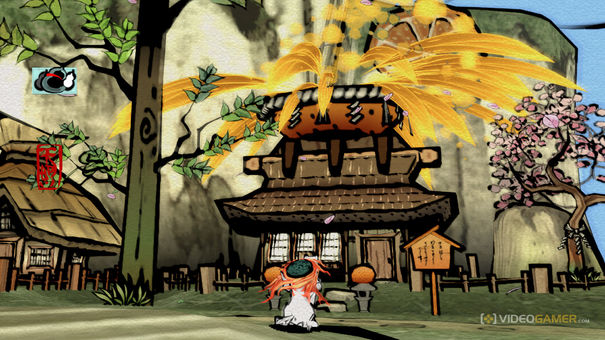
VG: Are those fears less now that the majority of review scores are positive?
HK: Yes, there are many users out there who use reviews when picking up a game, and yes, of course, reviews are important. At the end of the day what's most important for me is what the actual users who pick it up feel about the game. For example, the reviews for Viewtiful Joe and Okami were very good at the time, but whether it lead to high sales... it's not necessarily the case. I don't think just because there are high scores for 101 that it links to the sales. I still have that concern.
VG: Even with such fears or frustrations, Platinum's and your own relationship with Nintendo must be strong as Bayonetta 2 is also exclusive to the platform. Is it fair to say Nintendo saved the sequel from being lost entirely?
HK: The first Bayonetta was received very well, and that's why we had motivation for a second one and there were elements we weren't able to work in to the first game. I had unfinished business that I wanted to include in a second one. When that idea came about, Sega was actually putting it on hold so, yes, I'm very grateful for Nintendo that they're allowing us to make this happen.
VG: What was your take on the initial audience reaction? A lot of people seemed to be very upset it was Wii U only...
HK: Obviously with the Nintendo partnership Bayonetta 2 was always going to become a Wii U exclusive title. From a personal standpoint I want to make a game that's going to be enjoyed by the audience, so when Nintendo offered to support us and the Bayonetta franchise - which was on the brink of disappearing - I was extremely happy for it survival as we were able to release a second one for the people who enjoyed the first.
In that sense, I was very surprised at the user response when they found out it was Wii U only.
VG: Why was that reaction there, though? The fans, more or less, were getting what they wanted, just not necessarily in the way they expected.
HK: Honestly, the consoles that users can own is limited. They can only have so many. Not everyone can own everything, so it's fair to say that users would be upset that they wouldn't be able to play [Bayonetta 2] on a console they already own. That I very much understand. But at the time our team and our wish was to revive and create Bayonetta 2 and when Nintendo offered to support this project, and leading up to the announcement of the game, and when it was made, we were all extremely glad. Because of this, the happiness, I was slightly disappointed at the gap between my feelings and the fans' feelings.
VG: It has meant that the controls are very different from the first, be that using the gamepad, the touchscreen or Nintendo's more regular controller. In your mind does it change the way Bayonetta 2 has to be approached and played?
HK: Creating things, it's purely about including things that we find will be fun. It's not really a case of having to adapt to the different methods and I don't feel just because of that the development time will increase in any way. It's purely about incorporating things that we enjoy.
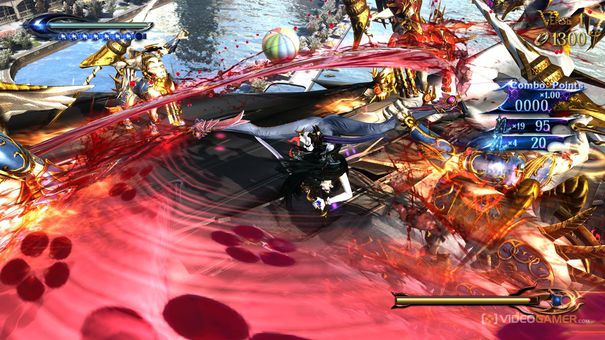
VG: As it's a sequel, though, there's a method already established. How does that differ, for example, when using the touchscreen? Do you see it as the 'easier' option, or at least an option those who may not want the Bayonetta challenge can use?
HK: I think the touchscreen controls are just an extension of the 'easy-automatic' mode we had with Bayonetta 1. Like the prequel, and for the sequel, we have a mode that's catered towards a user who would like to play it more casually, and, conversely, we have the modes that hardcore fans are going to find a challenge. I don't really see a big difference between the two. Also, we have still protected the core of Bayonetta, that thrill and interaction between player and character.
VG: Few companies would be able to launch back-to-back projects such as Wonderful 101 and Bayonetta without, potentially, shoe-horning an FPS, or the like, in the middle. How does Platinum Games dodge that?
HK: The floor structure at Platinum Games... We've made it so everyone can get involved in discussions. There are no partitions that separate us. Everyone is in one big room so if someone is having a discussion next to you, people on the other side of the room can hear - it's free for discussions from everyone. This and, although I'm a director and I can create the concepts, even if I do everything on my own I feel only 70% of a game's completion would come out of that unless there are staff around you who can say their opinions and come up with new ideas that I alone can't think of. It can beef that core concept up to 100% completion, even 200% completion! The environment that we have is extremely important to increasing quality in the games we develop.
VG: Do you think that the industry needs more of that?
All companies have their own way of doing things, so just because this works for us doesn't mean it will for other companies. We're lucky in the sense that top management doesn't tell us to create 'this type' of game. They take deeply into consideration the actual people on the floor and their ideas, inspirations and creativity. I think that's important and it's a cornerstone when we're creating things like 101 or Bayonetta 2 and the games we've done so far and keep doing.
I feel that there are people out there working in the industry thinking 'I want to make this type of game but my company won't allow me to'. I think if they were permitted to do what they like and follow their inspirations, there would be greater things to come within the games industry. I hope that's the case.
VG: On that note, and given how much time your team has now put into the Wii U, do you have ideas of how to use it in the future?
HK: Maybe one or two... [laughs]
